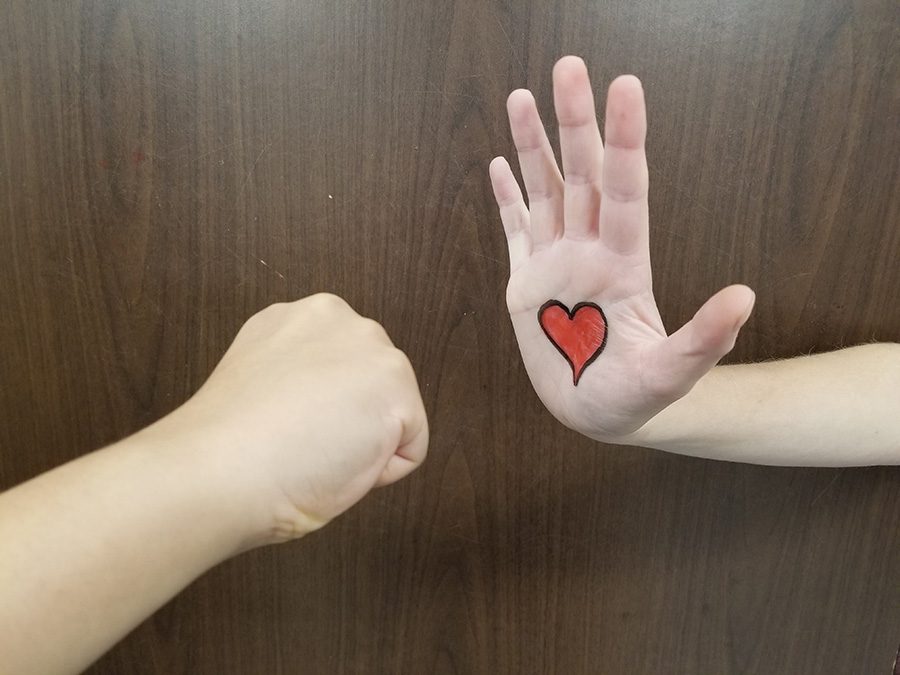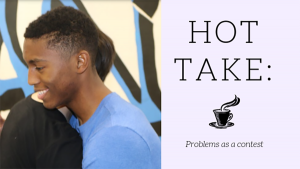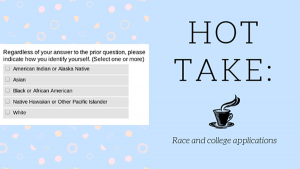Agree to disagree — it’s not a debate
When two students disagree, the best response is to not let their opinions divide them. Instead of facing a difference of opinion with hostility, we encourage people in high school and out of it to greet these differences with respect and kindness.
October 6, 2018
Far too often people default to anger when they face an opposing opinion. This aggression toward others will only hinder our ability as a species to learn from each other. In the hopes of promoting a healthier social climate, in high school and beyond, we’ve come together to offer some friendly advice.
We live in a very galvanized political and social climate. Everyone appears to have strong opinions about everything, and disagreement is always cause for heated argument. We all believe we are right, and everyone who disagrees is wrong. This is what we need to change. It’s time to communicate better.
The problem isn’t disagreeing with people, but rather, how we respond to it. Anger does not solve anything. If your goal is to promote change, then a relaxed and open conversation will accomplish more than an argument ever could.
Becoming a successful communicator isn’t easy. To ensure our ability to communicate is strong in the future, there are steps to take in the right direction today. For starters, don’t rant. Listen. Do not just wait for your turn to speak, but actually understand what your conversation partner has to say. Do not feel obligated to fill the silence between their sentences with “yeah” or “uh-huh,” because focusing on looking like you’re listening isn’t the same as actually listening.
If someone expresses an opinion that opposes your own, it is not your obligation to interject and claim your opinion as superior. Instead, ask the people you disagree with why they believe what they do. Start the conversation off on the right foot. You’ll find it easy to coexist with persons of differing opinions this way.
The same principle extends to friendship. Don’t let your feelings on an issue ruin a relationship. If your principles won’t allow you to continue being friends with someone who believes a certain idea, that’s alright. Find a way to peacefully end the friendship if you wish. If the issue isn’t quite that pivotal to you, stay friends. Don’t avoid the subject forever, but instead address it thoughtfully.
Why be nice? Because it is a far better thing to kindly convince others to join your side than to assume they are against you. Division is the enemy of progress. The only way to change people’s opinions is with peace. Martin Luther King knew this. Gandhi knew this. Nelson Mandela knew this. Hate and prejudice need to end, but peaceful protest and discussion are the only true solutions. Attacking people who have opposing opinions will only turn them against you.
Being calm and collected in conversation sounds easy when it’s written here, but when someone has upset you, being respectful back to them isn’t the default response. Being the better person in the discussion is your responsibility. It isn’t fair, but it’s right. It requires a high level of maturity and self-control, and we aren’t claiming that we have it figured out yet either.
Encourage yourself and others to initiate thoughtful, non-aggressive communication. Start talking to people you do not agree with. Doing so will not only keep things peaceful, but enrich the understanding and acceptance of both parties. Understanding the opposing opinion will give us a clearer understanding of the big picture from additional perspectives.
This is important, because in many situations, there is no right or wrong. On these issues, the morality is entirely subjective based on the circumstances and the subject in question. Two people may approach the issue in entirely different ways based off of what they believe. At the heart of all controversies, there is simply the question, at what point does this become wrong?
We all will come up with different boundaries that we feel should be the line between right and wrong. And we must learn to accept that an opposing perception is not wrong because we disagree, that no perception is ever inherently right or wrong. Morality is what defines the line between right and wrong, but the thing about morality is that it is entirely relative.
Some of us will insist that it isn’t. Some of us will insist that there is only one moral code to follow, and it’s the one set by a higher power. However, higher power is defined differently between cultures. We all must accept this — the existence of dissonance that results from moral codes of differing definitions.
But that’s not to say that we should bend over backwards to adopt the moral codes or the opinions of others as our own. As long as we are not enforcing our moral codes on others, as long as we allow opposing opinions to coexist, our world should have peace.
Don’t be a social justice warrior. Be a social justice activist. Among peers, there’s no war to be fought, no singular idea that proves superior to all others. Instead, become tolerant of opposing ideas, and open your ears to ideas that disagree with your own. Your character and your understanding of the world will improve as a result.









